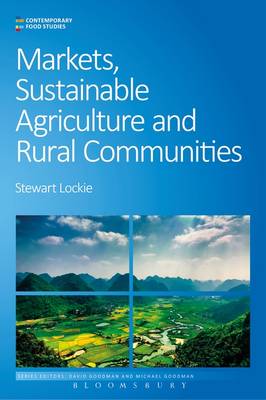Contemporary Food Studies: Economy, Culture and Politics
1 total work
Is it possible to reconcile environmental protection with greater agricultural productivity, more secure rural livelihoods and lower government expenditure? Market-based policy instruments promise to do just this. By liberalizing and expanding trade, encouraging markets to internalize environmental costs, and paying resource users like farmers to provide public good environmental services, it is argued that societies can maximize environmental and social benefits while minimizing economic costs. But is this promise too good to be true? Written by an internationally recognized expert on the sociology of food and agriculture, this book investigates how market-based policy instruments actually perform, in practice, as communities confront sticky questions about how to manage resources sustainably and responsibly. It argues that while many market-based instruments have merit, reversing the sustainability crisis requires a shift from government programs dominated by a logic of the market to programs based on deliberation and democratization.
